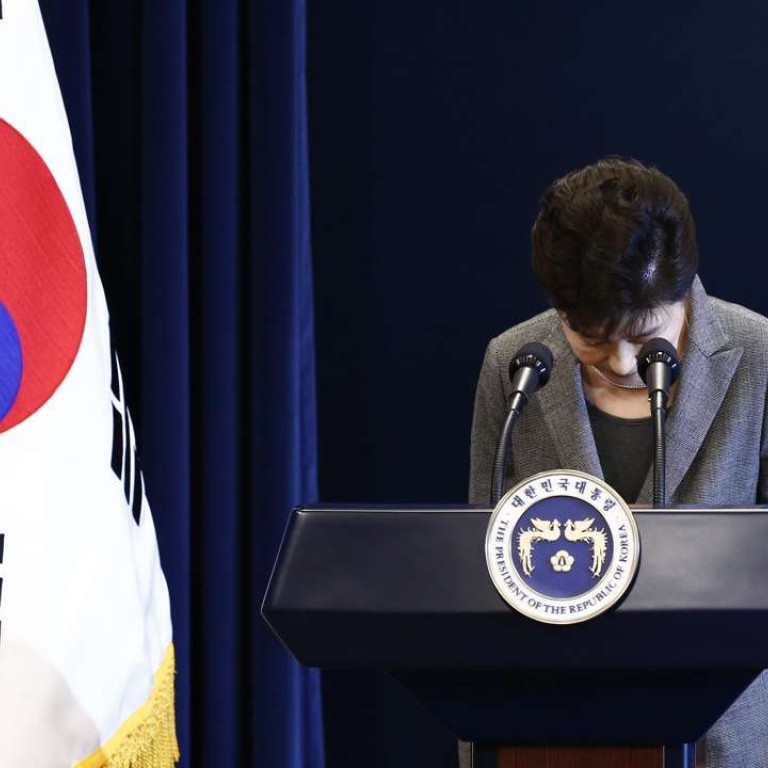
South Korean president’s attempts to cling to power are doing more damage
The country is in dire need of strong leadership to boost the economy and navigate the threat from North Korea, as well as to deal with rocky relations with China and the uncertainties of a future Trump administration
South Korea has rarely been in such urgent need of strong, respected leadership. President Park Geun-hye can no longer provide it, even if there is no obvious successor. With her authority irreparably damaged and her approval rating barely registering at 4 per cent, she is accused of stalling over demands that she step down. She has refused requests from state prosecutors to be interviewed over an extortion and influence-peddling scandal that has engulfed her office with the lame excuse that she has little time.
For the sake of upholding respect for the law and for her high office she has left herself with no alternative but to resign. She continues to resist demands to do so now as hundreds of thousands protest each week. Instead she says she will go once parliament develops a plan for a safe transfer of power. Though a transfer could take time, critics have dismissed the offer as a delaying tactic, with an impeachment process now postponed for a week. So long as Park remains in office, she is immune from prosecution for any wrongdoing.
Even before US president-elect Donald Trump’s shock election victory, South Korea needed strong leadership to boost an anaemic economy and navigate the nuclear and missile threats from North Korea and rocky relations with China and Japan. Now it faces more uncertainties as a future Trump administration translates unsettling campaign rhetoric into firm policies. He has already confirmed that he will scrap the US-led Trans-Pacific Partnership free-trade deal.
The collapse of the TPP alone will leave a number of trade issues to be negotiated. There has also been talk of US allies having to shoulder more costs of security partnerships and renegotiating trade deals. And the risk of an increasingly belligerent North Korea trying to exploit the uncertainty with provocation cannot be ruled out. But Park’s authority to deal with a whole range of dangers has been irretrievably weakened and her credibility destroyed by the scandal involving the influence wielded on the government by a close friend, and influence peddling by unofficial aides. The friend, the daughter of a religious cult leader, allegedly manipulated power from the shadows and extorted companies to amass an illicit fortune.
An apology and reshuffle of officials has failed to restore the respect due to Park’s office. Her five-year term still has 15 months to run. Paramount in her mind now should be her country’s best interests and regional stability. Clinging to power any longer does not serve either when South Korea is facing such challenges.

